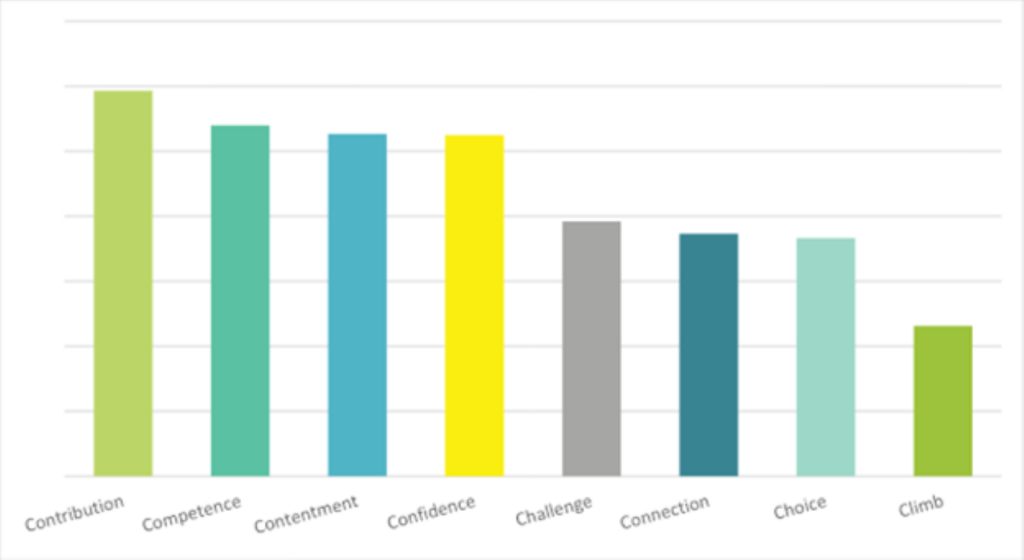In Promotions Are SO Yesterday, I introduced the idea of the Multidimensional Career and a framework that expands the definition of career development. Rather than conflating growth with the traditional upward trajectory of promotions, positions, and moves, this framework offers seven alternate ways employees can grow – right within the context of their own careers. They include:
- Contribution: Making a difference, being of service, or aligning with purpose
- Competence: Building critical capabilities, skills, abilities, and expertise
- Connection: Cultivating relationships, deepening networks, elevating visibility
- Confidence: Enhancing confidence, certainty, and trust in one’s talents and abilities
- Challenge: Stretching beyond what’s known and comfortable
- Contentment: Finding satisfaction, ease, balance, and joy in one’s work
- Choice: Exercising control, autonomy, flexibility, and decision-making authority
Looking at the First Half of 2023
While writing the book, I conducted an initial research study; and we’ve continued to collect data since then. As of today, the online Multidimensional Career Self-Assessment has been taken by nearly 8000 people worldwide. Results from the first half of this year parallel overall findings from last year. In aggregate, employees are more interested in each of the seven alternate dimensions than the classic climb up the corporate ladder.

Contribution continues to rank first. As was the case last year, Competence and Contentment are running neck-and-neck for second place. But this year, Confidence has jumped up to nearly comparable levels while Challenge has dropped to levels far closer to Connection and Choice than in 2022. Still, Climb remains dead last.
What Does This Mean?
The dynamics differ by individual and organization, but these results may suggest some workplace trends to consider.
For instance, workers today want a deeper sense of purpose from their work. If they’re going to spend 40/50/60 hours each week toiling away, they want it to mean something. Tapping that desire to make a difference can offer tremendous benefits to the organization; and when approached with intention, it can also offer tremendous opportunities for growth.
Greater interest in Confidence may be influenced by shifting labor market dynamics, high-profile workforce reductions, and economic uncertainty. It may also be an artifact of greater psychological safety, a focus within so many organizations. And the authenticity, vulnerability, and trust that many witnessed and cultivated during the Covid years may have left people feeling more comfortable admitting and addressing issues of compromised confidence.
The slightly lower interest in Challenge is likely a result of the current levels of burnout, stress, and compromised well-being that many employees report experiencing. What might previously have been viewed as an exhilarating opportunity to stretch one’s capacity to grow now feels like one burden too many to carry.
And the fact that Climb is the least interesting of the dimensions should be welcome news to leaders everywhere. Employees are looking for many other ways to grow beyond promotions. And the other seven dimensions fall squarely within an employee’s and leader’s sphere of influence. Together, leaders and employees can find ways of making a difference that leads to growth. They can identify and pursue new skills that serve the organization and the individual. They can collaborate to cultivate greater contentment or confidence in one’s current role to support overall career and life goals.
The Multidimensional Career Framework casts a comprehensive view of career development. And employee sentiment as recently as the first half of this year continues to confirm that the expanded definition and alternate dimensions resonate even more deeply with employees than the traditional notion of promotions.
If you’ve not already taken the Multidimensional Career Self-Assessment yourself, why not? It’s free, requires just 10 minutes, and delivers a personalized feedback report with analysis and questions to help you plan a robust development conversation with your manager. Get started!

